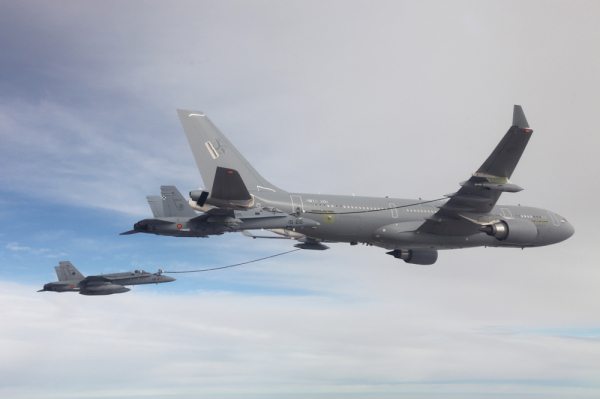Senior European leaders and EADS head Louis Gallois expressed disappointment Friday after the Airbus plane maker lost out to arch US rival Boeing on a massive US Air Force tanker contract.
“We’re disappointed and perplexed. We wonder about the reasons why we lost. I think that the US Air Force said … that it was about price,” Gallois told a telephone press conference.
“There will be an opportunity for a debriefing on Monday and we’ll see for which reasons we lost and in which conditions so I won’t talk about the procedure,” he said.
A decision on appealing the award to Boeing has not been taken, pending the debriefing, he said, adding that the outcome would not change “the business’ medium-term economic trajectory.”
“We made a bid that respected our standards of profitability, we remain on the same economic trajectory that we were on.”
The Pentagon on Thursday announced that Boeing had won the contract, worth over $30 billion, to supply aerial refuelling tankers to the US Air Force, at the end of a long and tortuous contest.
The US firm is now tasked with delivering 18 aircraft by 2017 but the contract is expected to eventually be for 179 tankers.
The planes, effectively flying filling stations, give US aircraft global reach and allow Washington to project military power almost where it will.
The decision capped a nearly 10-year attempt by the US Air Force to replace an ageing Boeing-built fleet of 400 tankers dating back to the 1950s.
Many believed that the European Aeronautic Defence and Space Company would land the contract, having won a first decision which was then set aside when Boeing appealled against it.
Gallois said the setback did not call into question EADS’ desire to develop in the United States.
“We will find other opportunities,” he said.
“We have other prospects with the Pentagon, notably helicopters, and we can develop other activities in the United States, in security, services, defence, we have some ideas in this domain that I can’t elaborate on here,” he said.
Airbus boss Tom Enders also sought to minimise the setback.
“We have given our competitor a tough fight and forced them to offer a very low price,” he said. “For Boeing, loosing this would have been a disaster. For us it is only a lost business opportunity.”
Analyst Christophe Menard at Kepler capital markets said that had EADS won the contract, “psychologically, it would have been a considerable victory in terms of market penetration.”
French Economy Minister Christine Lagarde declined to comment on the award but said she remained confident about Airbus’ ability to compete in the global market.
“All I know is Airbus is a magnificent company and I have full trust and confidence in its ability to face competition and challenges of the markets,” Lagarde told reporters.
A spokesman for German Chancellor Angela Merkel said in Berlin that the Pentagon’s decision was disappointing and Washington had missed a chance to deepen the transatlantic relationship.
Air Force Secretary Michael Donley said both firms met 372 mandatory requirements, but because Boeing’s bid was more than one percent lower, additional requirements were not taken into account.
Boeing proposed the NewGen Tanker, based on its long-haul, wide-body 767 commercial aircraft. The tanker will be built at a plant in Everett, Washington state and then fitted out in Wichita, Kansas.
EADS’s defeat dealt a blow to supporters in the US Gulf Coast states trying to recover from last year’s BP oil spill disaster.
If EADS had won, its France-based Airbus unit would have assembled the tanker aircraft at a new plant in Mobile, Alabama.










